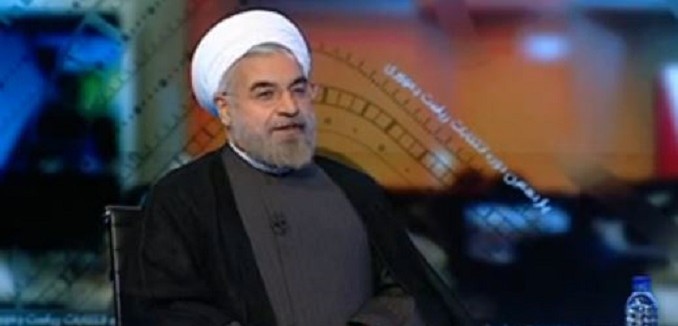Evaluating several scenarios explaining the election of Iranian cleric Hassan Rouhani to be Iran’s next president, veteran U.S. diplomat Dennis Ross outlined in the pages of The New York Times that Rouhani’s election still doesn’t guarantee a nuclear deal:
He believes that Mr. Rowhani’s election could provide a safety valve for the great discontent within Iran.
He believes that Mr. Rowhani, a president with a moderate face, might be able to seek an open-ended agreement on Iran’s nuclear program that would reduce tensions and ease sanctions now, while leaving Iran room for development of nuclear weapons at some point in the future.
He believes that Mr. Rowhani might be able to start talks that would simply serve as a cover while Iran continued its nuclear program.
He wants to rebalance the power relationship among Iran’s leading factions, reconciling their fissures while restoring the relative weight of the clerics vis-à-vis the Revolutionary Guard. Mr. Rowhani is himself a cleric, but also a likely conciliator who might be a bridge between the harder-line clerics and more pragmatic forces.
None of this means there will be a nuclear deal. Even if he were given the power to negotiate, Mr. Rowhani would have to produce a deal the supreme leader would accept. So it is far too early to consider backing off sanctions as a gesture to Mr. Rowhani.
Earlier this month Khamenei forbid, in advance, the eventual winner of the election from making concessions to the West, and this week an Iranian official clarified that no deal under Rouhani would include a suspension of uranium enrichment. The supreme leader subsequently said that a solution to the diplomatic crisis over Iran’s atomic program would be “easy” if only the West in general and especially the U.S. ceased generating “excuses.”
The remarks prompted sardonic eyebrow raising from foreign policy analysts. Analyst skepticism was also echoed by Ilan Berman, vice president of the American Foreign Policy Council, who emphasized that Iran may now be using the election of Hassan Rouhani to buy time to rebuild the country economically and push forward on its nuclear program.
And the Western news media writ large have rushed to highlight Rowhani’s “moderate” views, and to expound upon the need to seize the opportunity afforded by Iran’s apparent political turnaround.
That, of course, is music to the ears of Iran’s ayatollahs, who are now weathering serious economic hardship as a result of Western sanctions. To them, having Rowhani’s kinder, gentler face at the political helm is liable to be a boon — one that might just succeed in changing the policy of Washington and European capitals from confrontation to engagement precisely when such a shift is needed most.
If they are right, Tehran will have just bought itself precious time to regroup economically and to forge ahead on the nuclear front. Washington, by contrast, might soon feel a distinct sense of déjà vu.
An Economist analysis published this week concluded that it is unlikely that Tehran’s decision calculus can be changed so that it shuts down its nuclear program.
It seems unlikely that Iran could be forced to change course on this matter by foreigners. The best that can be hoped for is that it decides that it does not want or need a nuclear weapon. The alternative is probably a nuclear-armed Middle East in which Iran and Israel—and eventually Saudi Arabia, Turkey and Egypt—all have missiles pointed at each other.
[Photo: IranTime / Youtube]




